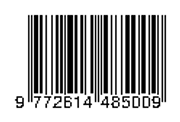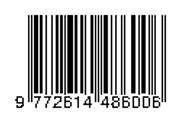AuditRaya Mobile Information System (Siramo) at Kspps Raya Banda Madani Using Cobit 5
DOI:
https://doi.org/10.26905/jeemecs.v7i2.13872Keywords:
Information System Audit, COBIT 5, Data Security, System Reliability KSPPS, Mobile Information SystemAbstract
The use of information technology at KSPPS RAYA BANDA MADANI, particularly through the Raya Mobile Information System (SIRAMO), is essential to support operations and member services. However, a thorough audit is required to ensure the security, reliability and compliance of the system to IT governance standards such as COBIT 5. This research aims to assess these aspects through an audit using COBIT 5, as well as provide recommendations for improvement.This research uses a case study method with a qualitative approach. Data was collected through interviews, questionnaires, observation, and document analysis. The results showed weaknesses in data security, information accuracy, and compliance with COBIT 5 standards, although SIRAMO supports mobile operations effectively. Recommendations for improvement include enhancing security controls, validating data, and developing more effective monitoring mechanisms. The result of this study is that audits using COBIT 5 can identify areas that need improvement to enhance the performance and security of SIRAMO at KSPPS RAYA BANDA MADANI, as well as improve operational efficiency and member satisfaction.
Downloads
References
] T. Rahayu, N. Matondang, and B. Hananto, “Audit Sistem Informasi Akademik Menggunakan Metode Cobit 5,†J. Teknol. Inf. dan Pendidik., vol. 13, no. 1, pp. 117–123, 2020, doi: 10.24036/tip.v13i1.305.
P. P. Thenu, A. F. Wijaya, and C. Rudianto, “Analisis Manajemen Risiko Teknologi Informasi Menggunakan Cobit 5 (Studi Kasus: Pt Global Infotech),†J. Bina Komput., vol. 2, no. 1, pp. 1–13, 2020, doi: 10.33557/binakomputer.v2i1.799.
D. Pasha, A. thyo Priandika, and Y. Indonesian, “Analisis Tata Kelola It Dengan Domain Dss Pada Instansi Xyz Menggunakan Cobit 5,†J. Ilm. Infrastruktur Teknol. Inf., vol. 1, no. 1, pp. 7–12, 2020, doi: 10.33365/jiiti.v1i1.268.
O. Purwaningrum, B. Nadhiroh, and S. Mukaromah, “Literature Review Audit Sistem Informasi Menggunakan Kerangka Kerja Cobit 5,†J. Inform. dan Sist. Inf., vol. 2, no. 3, pp. 587–595, 2021, doi: 10.33005/jifosi.v2i3.409.
R. R. Suryono, D. Darwis, and S. I. Gunawan, “Audit Tata Kelola Teknologi Informasi Menggunakan Framework Cobit 5 (Studi Kasus: Balai Besar Perikanan Budidaya Laut Lampung),†J. Teknoinfo, vol. 12, no. 1, p. 16, 2018, doi: 10.33365/jti.v12i1.38.
A. P. Rabhani et al., “Audit Sistem Informasi Absensi Pada Kejaksaan Negeri Kota Bandung Menggunakan Framework Cobit 5,†J. Sisfokom (Sistem Inf. dan Komputer), vol. 9, no. 2, pp. 275–280, 2020, doi: 10.32736/sisfokom.v9i2.890.
P. A. Pratama, G. R. Dantes, and G. Indrawan, “Audit Sistem Informasi Universitas Pendidikan Ganesha Dengan Framework Cobit 5,†JST (Jurnal Sains dan Teknol., vol. 9, no. 2, pp. 153–161, 2020, doi: 10.23887/jstundiksha.v9i2.25948.
J. Sihotang, E. Setiawan Panjaitan, R. Yunis, M. Teknologi Informasi, and S. Miskroskil, “Evaluation of Information Technology Governance by Using CobIT 5 Framework at Higher Education,†J. Mantik, vol. 4, no. 3, pp. 2194–2203, 2020, [Online]. Available: https://iocscience.org/ejournal/index.php/mantik
A. Hanif, M. Giatman, and A. Hadi, “Evaluasi Tata Kelola Teknologi Informasi Di Dinas Komunikasi Dan Informatika Menggunakan Framework Cobit 5,†JST (Jurnal Sains dan Teknol., vol. 9, no. 1, pp. 94–101, 2020, doi: 10.23887/jstundiksha.v9i1.28401.
A. Nurdin and M. Lubis, “The IT Governance Measurement using Cobit 5 Framework in Quality Assurance Department,†J. Inform. dan Rekayasa Perangkat Lunak, vol. 5, no. 1, p. 80, 2023, doi: 10.36499/jinrpl.v5i1.7963.
O. Purwaningrum, “Studi Literatur : Framework Cobit 5 Pada Tata Kelola Teknologi Informasi,†SCAN - J. Teknol. Inf. dan Komun., vol. 16, no. 2, 2021, doi: 10.33005/scan.v16i2.2598.
M. Muthmainnah, S. Safwandi, M. Jannah, and V. Ilhadi, “Evaluasi Tata Kelola Teknologi Informasi Menggunakan Framework Cobit 5 Proses Dss03 Dan Mea01 Di Universitas X,†Sisfo J. Ilm. Sist. Inf., vol. 5, no. 1, pp. 1–12, 2021, doi: 10.29103/sisfo.v5i1.4848.
N. Lediwara, “Analisis IT Governance Menggunakan Framework Cobit 5 Domain DSS, MEA dan BAI,†Pseudocode, vol. 7, no. 2, pp. 97–104, 2020, doi: 10.33369/pseudocode.7.2.97-104.
Additional Files
Published
Issue
Section
License
Our ethic statements are based on COPE’s Best Practice Guidelines for Journal Editors.
Publication decisions
The editor is responsible for deciding which of the articles submitted to the journal should be published.
The editor may be guided by the policies of the journal's editorial board and constrained by such legal requirements as shall then be in force regarding libel, copyright infringement and plagiarism. The editor may confer with other editors or reviewers in making this decision.
Fair play
An editor at any time evaluate manuscripts for their intellectual content without regard to race, gender, sexual orientation, religious belief, ethnic origin, citizenship, or political philosophy of the authors.
Confidentiality
The editor and any editorial staff must not disclose any information about a submitted manuscript to anyone other than the corresponding author, reviewers, potential reviewers, other editorial advisers, and the publisher, as appropriate.
Disclosure and conflicts of interest
Unpublished materials disclosed in a submitted manuscript must not be used in an editor's own research without the express written consent of the author.
Duties of Reviewers
Contribution to Editorial Decisions
Peer review assists the editor in making editorial decisions and through the editorial communications with the author may also assist the author in improving the paper.
Promptness
Any selected referee who feels unqualified to review the research reported in a manuscript or knows that its prompt review will be impossible should notify the editor and excuse himself from the review process.
Confidentiality
Any manuscripts received for review must be treated as confidential documents. They must not be shown to or discussed with others except as authorized by the editor.
Standards of Objectivity
Reviews should be conducted objectively. Personal criticism of the author is inappropriate. Referees should express their views clearly with supporting arguments.
Acknowledgement of Sources
Reviewers should identify relevant published work that has not been cited by the authors. Any statement that an observation, derivation, or argument had been previously reported should be accompanied by the relevant citation. A reviewer should also call to the editor's attention any substantial similarity or overlap between the manuscript under consideration and any other published paper of which they have personal knowledge.
Disclosure and Conflict of Interest
Privileged information or ideas obtained through peer review must be kept confidential and not used for personal advantage. Reviewers should not consider manuscripts in which they have conflicts of interest resulting from competitive, collaborative, or other relationships or connections with any of the authors, companies, or institutions connected to the papers.
Duties of Authors
Reporting standards
Authors of reports of original research should present an accurate account of the work performed as well as an objective discussion of its significance. Underlying data should be represented accurately in the paper. A paper should contain sufficient detail and references to permit others to replicate the work. Fraudulent or knowingly inaccurate statements constitute unethical behavior and are unacceptable.
Originality and Plagiarism
The authors should ensure that they have written entirely original works, and if the authors have used the work and/or words of others that this has been appropriately cited or quoted.
Multiple, Redundant or Concurrent Publication
An author should not in general publish manuscripts describing essentially the same research in more than one journal or primary publication. Submitting the same manuscript to more than one journal concurrently constitutes unethical publishing behaviour and is unacceptable.
Acknowledgement of Sources
Proper acknowledgment of the work of others must always be given. Authors should cite publications that have been influential in determining the nature of the reported work.
Authorship of the Paper
Authorship should be limited to those who have made a significant contribution to the conception, design, execution, or interpretation of the reported study. All those who have made significant contributions should be listed as co-authors. Where there are others who have participated in certain substantive aspects of the research project, they should be acknowledged or listed as contributors.
The corresponding author should ensure that all appropriate co-authors and no inappropriate co-authors are included on the paper, and that all co-authors have seen and approved the final version of the paper and have agreed to its submission for publication.
Disclosure and Conflicts of Interest
All authors should disclose in their manuscript any financial or other substantive conflict of interest that might be construed to influence the results or interpretation of their manuscript. All sources of financial support for the project should be disclosed.
Fundamental errors in published works
When an author discovers a significant error or inaccuracy in his/her own published work, it is the author’s obligation to promptly notify the journal editor or publisher and cooperate with the editor to retract or correct the paper.










